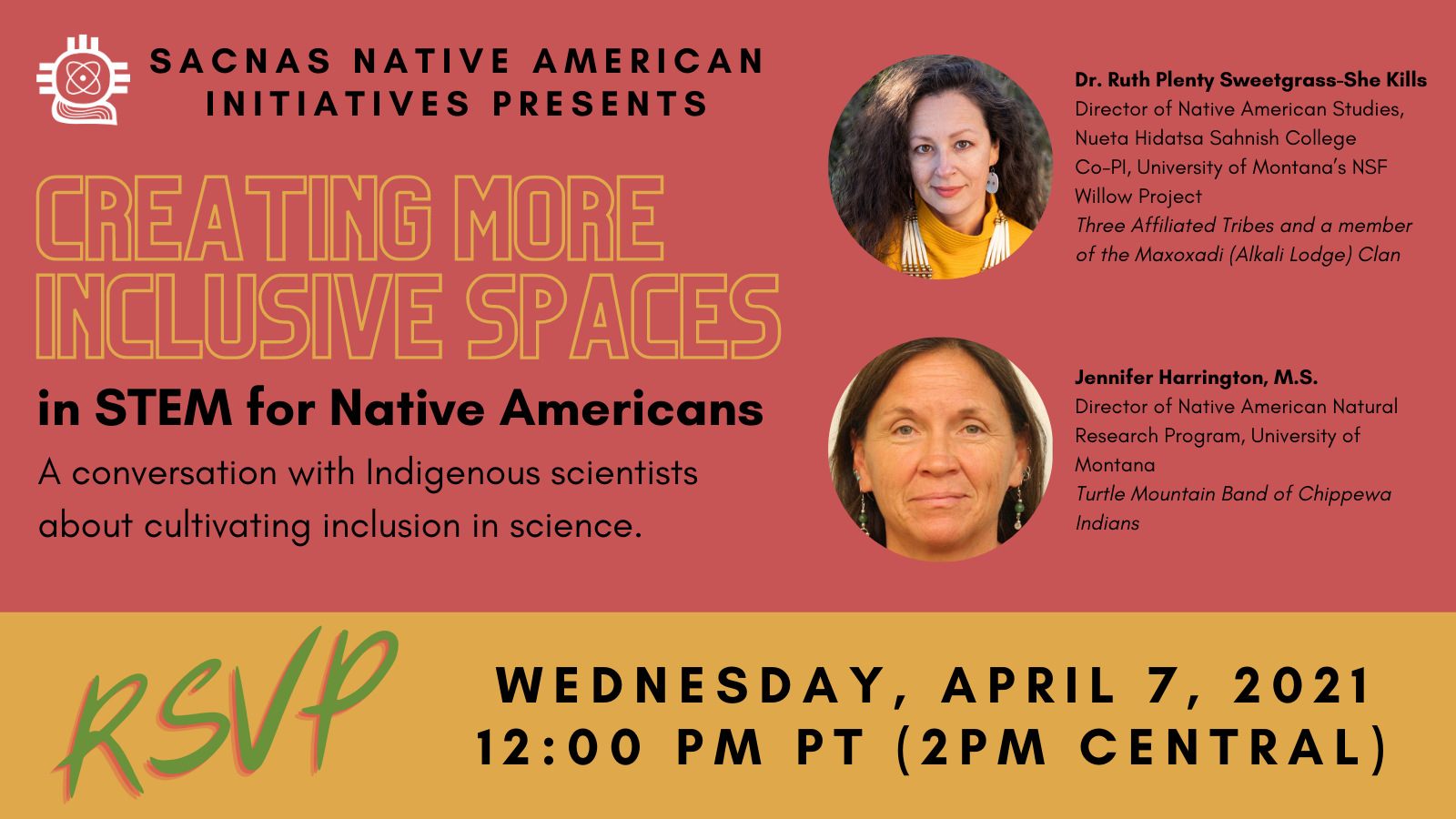Date: April 7, 2021
Time: 12pm PT (2pm Central)
This webinar will feature guest panelists Dr. Ruth Plenty Sweetgrass-She Kills and Jennifer Harrington who will be discussing their article “Creating More Inclusive Spaces in STEM for Native Americans” and share more of their experiences and discuss ways to create more inclusive spaces for Indigenous people in STEM.
Speakers:
Ruth Plenty Sweetgrass-She Kills, PhD
Director, Native American Studies/Co-PI Willow Project @Nueta Hidatsa Sahnish College
Dr. Ruth Plenty Sweetgrass-She Kills, Hątáde Wį́yą (Night Wind Woman), is an enrolled citizen of the Three Affiliated Tribes and a member of the Maxoxadi (Alkali Lodge) Clan. She earned her associate’s degree in Environmental Science from Nueta Hidatsa Sahnish College, bachelor’s degree in Elementary Education from the University of North Dakota, master’s degree in Organismal Biology and Ecology from the University of Montana, and her doctorate in Forest and Conservation Sciences from the University of Montana. She is a Ford Foundation Fellow and Sloan Indigenous Graduate Fellow. Currently, she is the Director of Native American Studies at Nueta Hidatsa Sahnish College and a Co-PI for the University of Montana’s NSF-funded Willow Project where she leads the social science research team.
Jennifer Harrington, MS
Native American Natural Resource Program Director @University of Montana
Jen Harrington is an enrolled member of the Turtle Mountain Band of Chippewa Indians. She earned her Bachelor of Science degree in Resource Conservation and her Master of Science degree in Resource Conservation from the University of Montana. She is a Sloan Indigenous Graduate Fellow and has received funding awards from Indigenous Research and STEM Education (IRSE), the Roberti Fellowship, and Hopa Mountain. Currently, she is the Director of Native American Natural Resource Program and a social science researcher for the University of Montana’s NSF-funded Willow Project.

